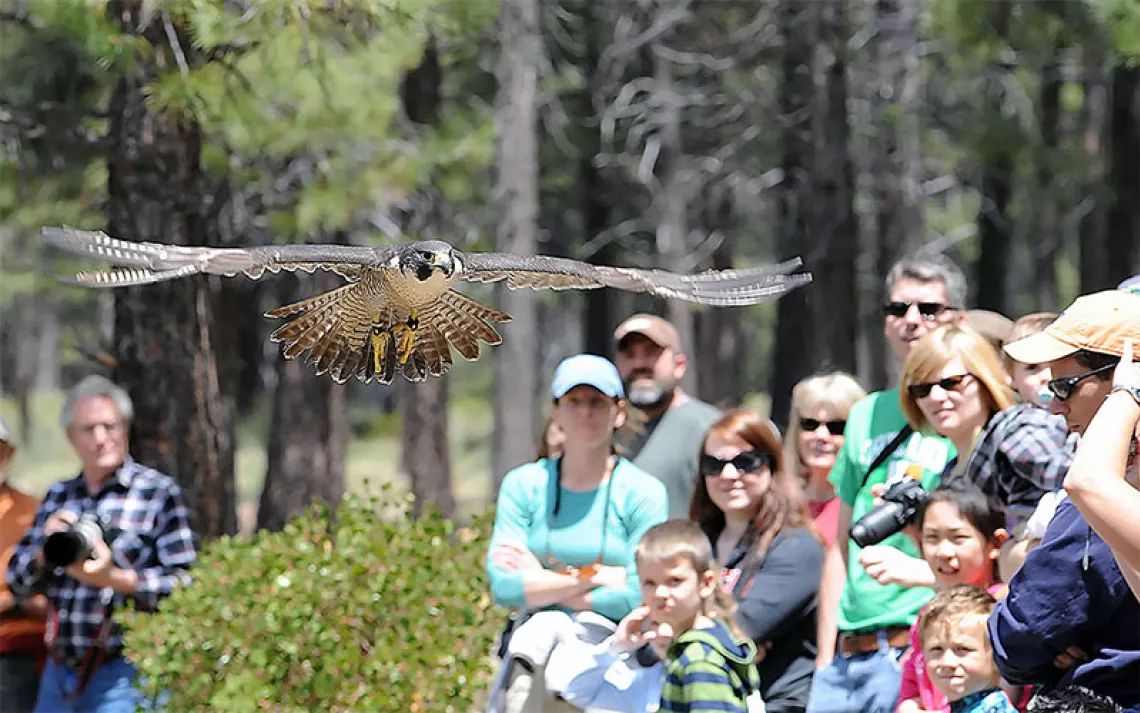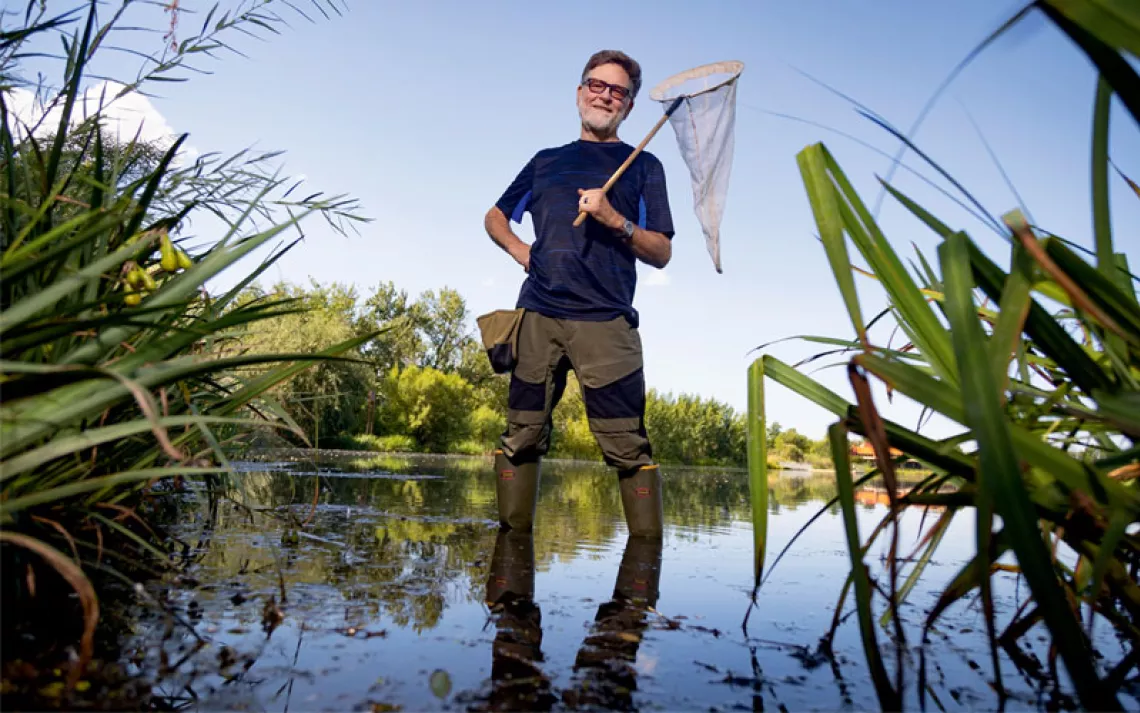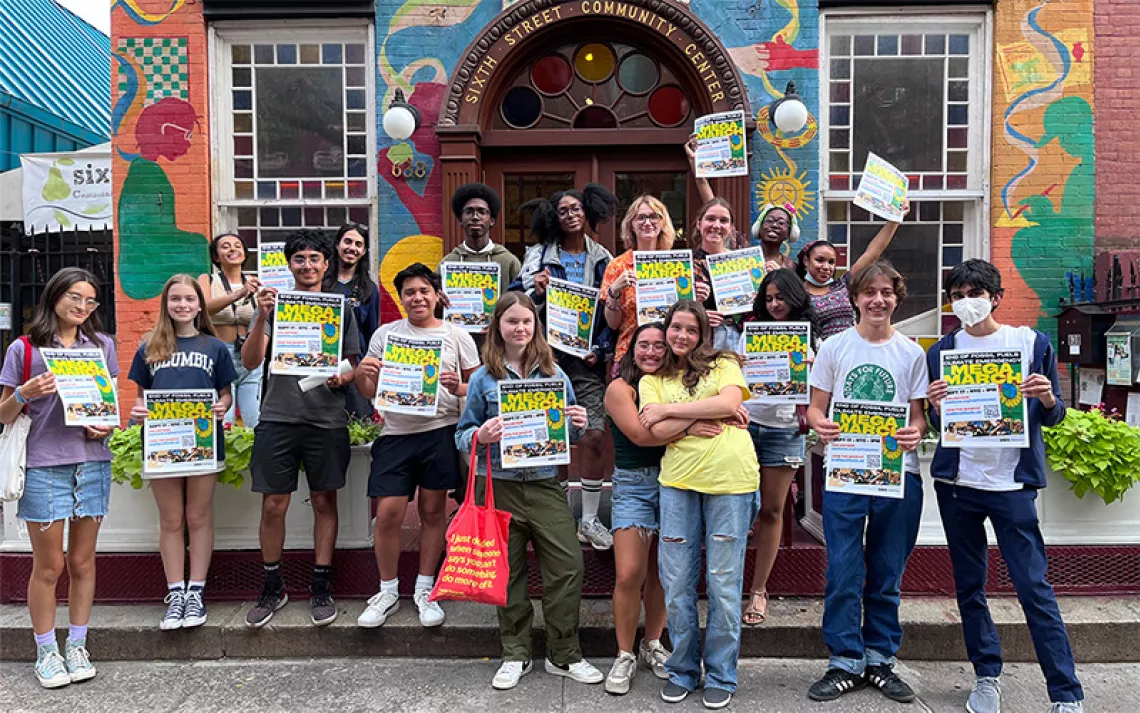Nature's Metamorphosis
How The Butterfly Movement promotes self-love among girls of African descent

Photos courtesy of Brandi Mack and The Butterfly Movement
“In most cities, like Chicago, grass is a delicacy. It’s fenced out for private lawns,” says Niambi Jaha-Echols. “There are playgrounds for the younger kids, but in urban settings it’s becoming harder for youths to just hang out in nature.”
Jaha-Echols is the founder and president of The Butterfly Movement, a program and camp that aim to help girls experience what many otherwise wouldn’t have access to: nature. Alongside her right hand, national director and CEO Brandi Mack, she has built a national phenomenon based on exposing young women of African descent to new environments and supporting positive self-growth during their transition, Jaha-Echols says, “from caterpillars to butterflies.”
 Camp Butterfly, a seven-day overnight experience, and Project Butterfly, the movement’s after-school program, both stemmed from Jaha-Echols’s 2003 book, Project Butterfly: Supporting Young Women and Girls of African Descent Through the Transitions of Life, which explores the physical, emotional, and social aspects of coming of age. After its release, multiple readers, friends, and teachers beseeched Jaha-Echols, who also works as a cultural agility strategist, to create after-school programs in her native city of Chicago, so as to help young girls in person and to train other adults.
Camp Butterfly, a seven-day overnight experience, and Project Butterfly, the movement’s after-school program, both stemmed from Jaha-Echols’s 2003 book, Project Butterfly: Supporting Young Women and Girls of African Descent Through the Transitions of Life, which explores the physical, emotional, and social aspects of coming of age. After its release, multiple readers, friends, and teachers beseeched Jaha-Echols, who also works as a cultural agility strategist, to create after-school programs in her native city of Chicago, so as to help young girls in person and to train other adults.
“I got kind of bombarded with all these opportunities at the same time and realized that there weren’t any tools out there that spoke specifically to melanated girls moving through the cycles of life,” Jaha-Echols says. “So I got mad and created one.”
 The book became the “facilitator’s guide” to said tool and thus the foundation of The Butterfly Movement, which aims to introduce young black girls to nature and promote self-love. When Jaha-Echols met Mack, a holistic health educator and mother of three, in 2005 at a holistic-health symposium in Oakland, California, the two women felt an instant bond. Soon after, they hit the ground running to enhance Jaha-Echols’s organization, then in its beginning stages. After putting out the word about their first camp session, volunteers—not only from around the country, but also from Belize, Jamaica, and Zimbabwe—came forward, hoping to get involved as camp counselors. The organization then became, in a way, international. Since its inception, the movement has spread from Chicago to Michigan and California, and more than 1,000 young butterflies have swarmed together.
The book became the “facilitator’s guide” to said tool and thus the foundation of The Butterfly Movement, which aims to introduce young black girls to nature and promote self-love. When Jaha-Echols met Mack, a holistic health educator and mother of three, in 2005 at a holistic-health symposium in Oakland, California, the two women felt an instant bond. Soon after, they hit the ground running to enhance Jaha-Echols’s organization, then in its beginning stages. After putting out the word about their first camp session, volunteers—not only from around the country, but also from Belize, Jamaica, and Zimbabwe—came forward, hoping to get involved as camp counselors. The organization then became, in a way, international. Since its inception, the movement has spread from Chicago to Michigan and California, and more than 1,000 young butterflies have swarmed together.
The most recent camp session was held in Northern California’s Mendocino County at River’s Bend, an outdoor retreat along the Navarro River that Jaha-Echols and Mack rented. About 50 girls ages 11 to 17 had opportunities to connect with nature and one another through various activities—gardening, hiking, canoeing, and interacting with animals—that both Jaha-Echols and Mack say are led in a way that caters specifically to the needs of young girls of African descent. Participants are broken up into different “tribes,” which count two counselors/volunteers for every camper, and participate in workshops that revolve around building trust and self-esteem, and learning about their culture and experiences as black women (Camp Butterfly has, for instance, included workshops to help girls learn how to do their hair). Other activities include “girltalks,” talent and fashion “shares” (not contests), and other endeavors that many girls haven’t been previously exposed to.
For many young black women in difficult environments, Mack says, being outside coincides with being “on alert” and having to maintain a “tough-girl exterior.” Camp Butterfly is an opportunity for them to have fun and truly be care-free in nature.
“The one thing that we do is we use their cultural acceptance and reframe them out of this enslaved mindset that they’ve had in relationship to nature and being outside,” she says. “We [re]create for them the culture and the villages that existed in their beautiful native land.”
 According to Mack and Jaha-Echols, the “caterpillar to butterfly” notion mimics the traditional African rite of passage: birth, separation from adolescence, descent, and rebirth. Mack and Jaha-Echols use the butterfly analogy to show young girls that positive transformation is possible no matter where they come from—that all it takes to get there is work and dedication.
According to Mack and Jaha-Echols, the “caterpillar to butterfly” notion mimics the traditional African rite of passage: birth, separation from adolescence, descent, and rebirth. Mack and Jaha-Echols use the butterfly analogy to show young girls that positive transformation is possible no matter where they come from—that all it takes to get there is work and dedication.
“The caterpillar didn’t just wake up one day and say, ‘I’m tired of this caterpillar life, and tomorrow I am going to become a butterfly'; it has to go through its own internal process. All we can do is hold faith for it,” Jaha-Echols says. “So we realized that the best way to support our girls is to not see them as damaged. We don’t see that we have to fix anything—what we wanted to create was a safe space so that our girls and women could do their own regenerative work.
With another Camp Butterly session already scheduled for Summer 2018, a “pollination station”/garden launching next year within its Oakland after-school program, and hopeful plans to find a more permanent home (they currently rent programming space), The Butterfly Movement appears to be spreading its wings further. Which means that, with the help of Jaha-Echols, Mack, and their thousands of volunteers, more young girls will find their way out of their chrysalises and into their true selves.
 The Magazine of The Sierra Club
The Magazine of The Sierra Club



